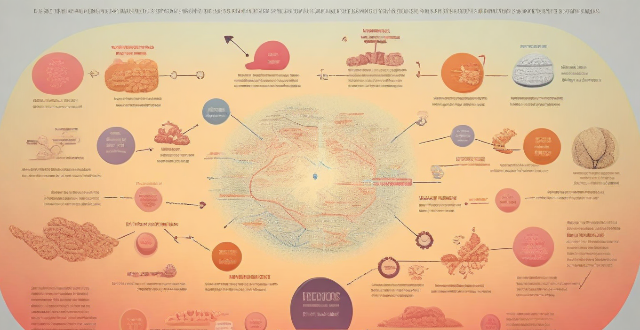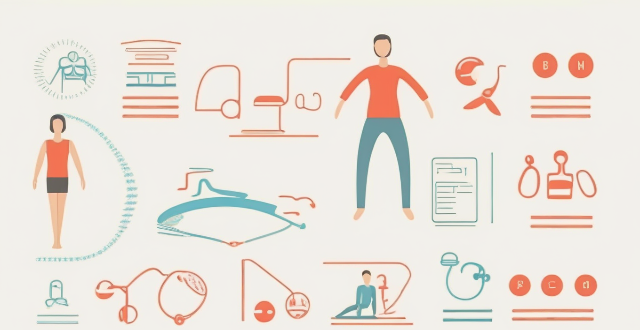Treatment Depression

Can exercise be a substitute for psychotherapy in treating mild depression ?
This article explores the potential of exercise as a treatment for mild depression and its possible limitations. While exercise can boost mood, reduce stress, improve sleep quality, and enhance self-esteem, it may not address the cognitive aspects of depression or be suitable for everyone. Therefore, it should not be considered a complete substitute for psychotherapy in all cases.

Can counseling help women overcome postpartum depression ?
Postpartum depression is a serious mental health condition that affects new mothers after childbirth. Symptoms include sadness, anxiety, and exhaustion, making it difficult for women to care for their babies or themselves. Counseling has been shown to be an effective treatment option for PPD. It provides a safe space to express emotions, identifies triggers, builds coping skills, enhances self-care, improves relationships, and supports medication management. If you or someone you know is experiencing symptoms of postpartum depression, consider seeking professional counseling to get the support and guidance needed to overcome this challenging condition.

How can parents recognize and respond to signs of postpartum depression ?
Recognizing Signs of Postpartum Depression (PPD) is crucial for new mothers to seek help if needed. Common signs include persistent sadness, difficulty bonding with the baby, changes in appetite or sleep patterns, irritability, withdrawal from social activities, and thoughts of harming oneself or the baby. If you notice any of these symptoms, take action by talking to your doctor, seeking support from loved ones, joining a support group, taking care of yourself, and considering professional help. Remember, seeking help is not a sign of weakness; PPD is a real medical condition that requires attention and treatment.

Is there a link between exercise and reduced risk of depression ?
**Link Between Exercise and Reduced Risk of Depression: A Comprehensive Overview** Depression is a prevalent mental disorder that affects millions globally. While its exact cause remains unclear, various factors, including lifestyle choices like exercise, have been studied for their potential to reduce the risk. This article delves into the evidence supporting the link between exercise and reduced risk of depression, exploring studies on animals and humans, potential mechanisms underlying this relationship, and practical tips for incorporating exercise into one's routine. **Studies on Animals:** Research has shown that regular exercise in rats can increase BDNF levels, a protein linked to the development and treatment of depression. This suggests that exercise may help reduce depression risk by boosting BDNF levels. **Studies on Humans:** Numerous studies have investigated the human connection between exercise and depression. A meta-analysis found exercise significantly reduces depressive symptoms compared to no treatment or placebo interventions. Another longitudinal study showed that regular physical activity lowers the likelihood of developing depression compared to sedentary behavior. **Potential Mechanisms:** Several mechanisms could explain how exercise reduces depression risk: * **Neurobiological Changes:** Exercise increases BDNF levels, promoting neuronal growth and improving mood. It also alters neurotransmitter levels involved in mood regulation. * **Endocrine Response:** Exercise stimulates endorphin release, producing pleasure and reducing pain perception, contributing to improved mood. * **Psychosocial Benefits:** Regular physical activity provides social interaction opportunities, enhancing mental health. It also improves self-esteem and body image. * **Stress Reduction:** Exercise reduces stress by decreasing cortisol secretion and promoting relaxation, which helps prevent depression since stress is a known risk factor. **Practical Tips:** To reduce your depression risk through exercise, start slowly with low-intensity activities, find enjoyable exercises, set realistic goals, make it social, and monitor your progress. In conclusion, ample evidence supports a link between exercise and reduced risk of depression. Both animal and human studies demonstrate the mood-enhancing effects of regular physical activity. By understanding the potential mechanisms and incorporating exercise into your routine, you can potentially lower your risk of developing depression and improve your overall well-being.

Can regular physical activity prevent depression ?
Regular physical activity can reduce depression risk by releasing endorphins, improving sleep, and boosting self-esteem. Start with 30 minutes daily of activities like walking or swimming, and consider joining a fitness class for motivation. Gradually increase intensity and listen to your body to avoid overexertion.

How much exercise is needed to reduce anxiety and depression symptoms ?
Exercise has been shown to reduce anxiety and depression symptoms, with moderate-intensity aerobic exercise for at least 150 minutes per week being effective. However, individual factors such as age, gender, health condition, and lifestyle can affect the amount of exercise needed. It is important to choose enjoyable and sustainable activities for long-term use, and seek professional help if struggling with mental health issues.

Can climate change exacerbate mental health issues such as depression and anxiety ?
Climate change can exacerbate mental health issues such as depression and anxiety through various pathways, including extreme weather events, displacement and loss of home, food insecurity, and economic stress. It is crucial for policymakers and healthcare professionals to recognize the connection between climate change and mental health and implement strategies to mitigate the adverse effects of climate change on mental well-being.

What are the treatment options for COVID-19 ?
The text is about the different treatment options for COVID-19. The treatments are divided into symptomatic treatment, antiviral treatment, monoclonal antibodies, convalescent plasma therapy, supportive care, and other potential therapies. Symptomatic treatment includes rest and hydration, pain relievers, and antibiotics if necessary. Antiviral medications such as Remdesivir and Favipiravir may be used in severe cases to suppress the virus. Monoclonal antibodies like Bamlanivimab and Casirivimab and Imdevimab can be used to treat certain patients at high risk of developing severe illness. Convalescent plasma therapy involves collecting blood plasma from recovered patients and transfusing it into active patients. Supportive care includes oxygen therapy, mechanical ventilation, and corticosteroids. Other potential therapies being investigated include interferon, nitazoxanide, and experimental drugs currently in clinical trials.

How do sports psychologists incorporate exercise into their treatment plans for emotional disorders ?
Sports psychologists incorporate exercise into treatment for emotional disorders, leveraging its benefits on mental health. They assess clients' fitness and attitudes towards exercise, set realistic goals, and use individualized plans, behavioral techniques, and group activities to promote adherence and progress. This approach has been shown effective, as illustrated by a case example treating depression through structured, gradually intensifying exercise routines, leading to significant improvements in the client's mood and self-esteem.

Is it true that working out can improve your mood ?
Working out can improve your mood by releasing endorphins, boosting self-esteem, improving sleep quality, providing social interaction, and reducing symptoms of depression.

What is the cost of treatment at a sports rehabilitation center ?
The cost of treatment at a sports rehabilitation center can vary depending on several factors, such as the location, services offered, and the severity of the injury. Here's a breakdown of the potential costs you may encounter: 1. Initial Assessment Fee: This fee covers the initial evaluation by a physical therapist or sports medicine specialist. It typically ranges from $50 to $200, depending on the facility and region. 2. Physical Therapy Sessions: Each session usually lasts between 30 minutes to an hour. The cost per session can range from $75 to $200, again depending on the location and expertise of the therapist. Most insurance plans cover part of this cost, but you may have to pay a copay or coinsurance. 3. Specialized Treatments: Some centers offer specialized treatments like hydrotherapy, ultrasound therapy, or electrical stimulation. These treatments can add an additional $30 to $100 per session. 4. Equipment Rental or Purchase: If your recovery requires the use of special equipment (like crutches, knee braces, etc.), there will be an additional cost. Rental fees can vary widely, while purchasing outright might set you back anywhere from $50 to several hundred dollars. 5. Follow-up Appointments: As your recovery progresses, you might need follow-up appointments to assess your progress and adjust your treatment plan. These can cost anywhere from $50 to $150 each. 6. Total Cost: The total cost of treatment can vary significantly based on the above factors. On average, you might expect to spend anywhere from $1,000 to $5,000 for a moderate to severe injury, assuming regular sessions over several weeks or months. Remember, this is just an estimate; actual costs can be higher or lower depending on individual circumstances.

What are the best ways to manage anxiety and depression in women ?
The text discusses several strategies for managing anxiety and depression in women, emphasizing the importance of seeking professional help, practicing self-care, building a support network, making lifestyle changes, and considering medication. It highlights different types of therapy and medical professionals to consult, as well as various self-care practices like exercise, mindfulness meditation, and journaling. The article also touches on the significance of social connections and time management in managing mental health. Finally, it provides information on antidepressants and stress reduction techniques, advising readers to work closely with healthcare professionals to find the best approach for their needs.